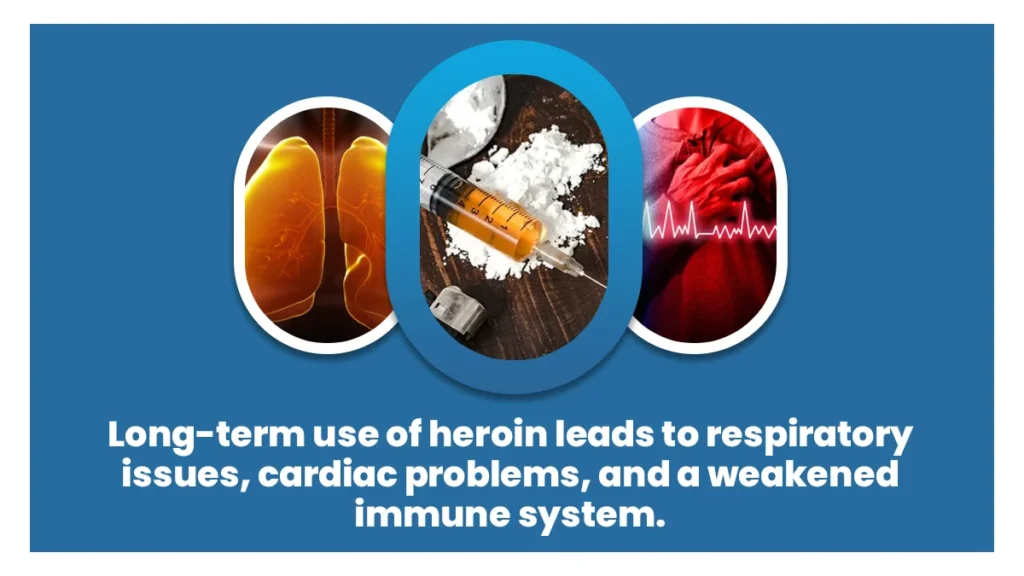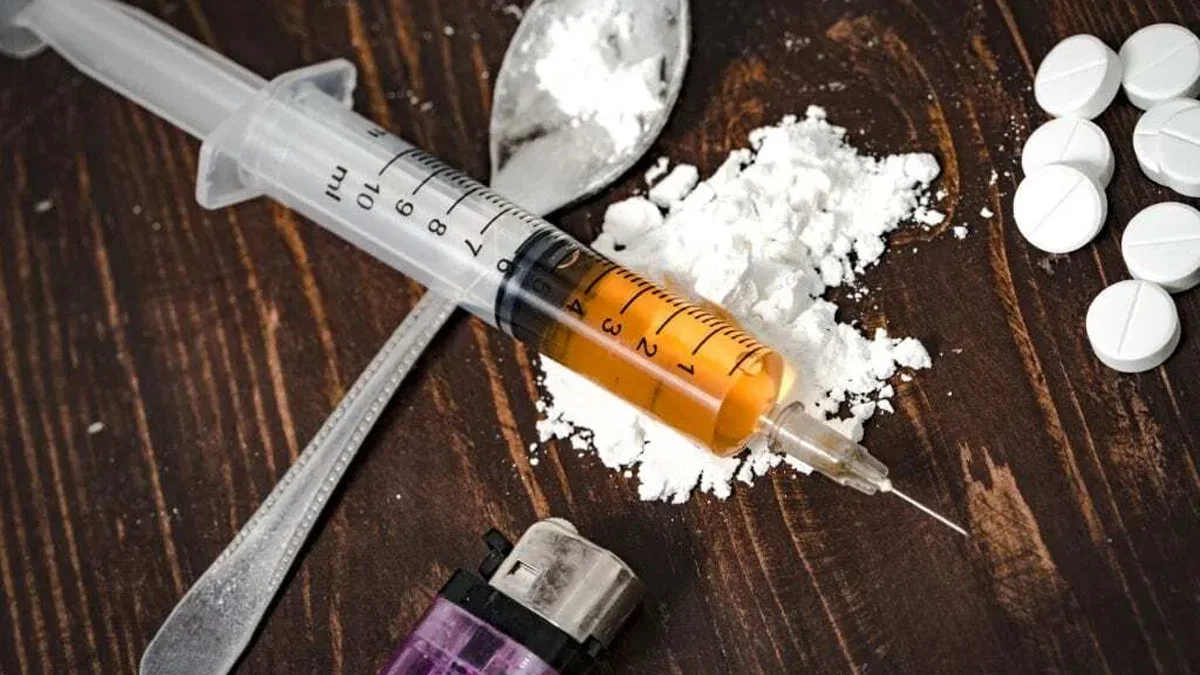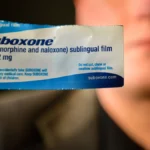Heroin, a potent opioid, is derived from morphine, which comes from the opium poppy plant. Individuals using heroin may exhibit distinct signs, revealing potential substance abuse. Physical indicators include constricted pupils, drowsiness, and slowed breathing.
Behavioral changes such as social withdrawal, neglect of responsibilities, and erratic mood swings may accompany heroin use. Financial troubles and declining personal relationships can further manifest.
Communities need to recognize subtle signs of heroin addiction for early intervention and support. This blog post helps you identify the signs of heroin use and can help address its impact on individuals and communities.
Key Takeaways
To identify heroin use, one needs to observe both physical symptoms and behavioral changes. Here’s what you need to know:
- Opioid painkiller overprescription contributes to the surge in heroin addiction.
- Long-term use leads to respiratory issues, cardiac problems, and a weakened immune system.
- Heroin affects behavior and personality, causing mood swings and neglect of responsibilities.
- If you or someone you know is using substances like heroin, seek professional assistance.
The Haven Detox-Little Rock offers specialized care and support for individuals seeking recovery from substance abuse. Call us at (501) 271-3342 to explore our treatment options.

What is Heroin: Rise of Addiction
Heroin, a highly addictive substance, belongs to the opioid family. It stems from the opium poppy plant and is processed from morphine, creating a potent drug that affects the brain’s pleasure systems.
In recent years, the United States has witnessed a concerning surge in heroin addiction. Factors such as the overprescription of opioid painkillers have contributed to this rise, leading some individuals down a dangerous path of substance abuse.
Identifying Heroin Use
Identifying heroin use involves recognizing both physical symptoms and behavioral changes. These indicators can vary, offering valuable insights into an individual’s potential struggle with heroin.
Physical Symptoms
Physically, heroin use leaves distinct markers. Constricted pupils, drowsiness, and slowed breathing are common immediate signs. Additionally, needle marks, sudden weight loss, and a generally disheveled appearance may become noticeable over time.
Behavioral Changes
Heroin use significantly influences behavior. Individuals may exhibit erratic mood swings, alternating between extreme euphoria and periods of intense lethargy.
The pursuit of the drug often leads to neglect of responsibilities, with people struggling to maintain regular routines. Social withdrawal is a prevalent behavioral change, as individuals prioritize heroin over interpersonal connections.
Physical Effects of Heroin Use
Heroin’s impact on the body is profound, leading to both immediate and long-term physical consequences.
Immediate Physical Impact
Upon use, heroin induces a swift sense of euphoria but is swiftly accompanied by side effects. Nausea, vomiting, and severe itching are common, alongside constricted pupils, slowed breathing, and a sense of drowsiness. These immediate effects contribute to the drug’s allure but foreshadow potential harm.
Long-Term Physical Damage
Continued heroin use takes a toll on the body over time. People may face respiratory issues, compromised breathing, and a risk of respiratory failure.
Cardiac problems and a weakened immune system become prevalent, heightening susceptibility to infections. Persistent drug use can lead to severe consequences, underlining the urgent need for awareness and intervention.
Psychological Signs of Heroin Use
Heroin use goes beyond the physical; it significantly impacts the mind, leading to noticeable changes in behavior and personality. These psychological signs can serve as important clues to someone struggling with heroin.
Changes in Behavior and Personality
Users often display erratic behavior marked by extreme mood swings. Moments of euphoria alternate with periods of profound lethargy, disrupting regular routines. Neglecting responsibilities becomes familiar as the pursuit of the drug takes precedence over daily life.
Mental Health Concerns
Heroin use intertwines with mental health challenges. Anxiety, depression, and heightened irritability are prevalent. The drug’s impact on emotional stability can lead to strained relationships and difficulties in maintaining a sense of well-being.
Heroin Withdrawal
Realizing withdrawal symptoms is essential for understanding the full spectrum of heroin use. When individuals attempt to quit, they may experience intense physical and psychological symptoms, including muscle pain, insomnia, and severe cravings.
Spotting Withdrawal Symptoms
Identifying withdrawal symptoms involves noting abrupt changes in behavior, such as increased anxiety, restlessness, and a visible struggle to concentrate. These signs indicate the body’s dependency on heroin and the challenges associated with breaking free from its grip.
Social Impact of Heroin Use
The social impact of heroin use extends far beyond individual experiences. It casts a ripple effect that touches relationships, communities, and societal dynamics.
Changes in Social Life
As heroin use takes hold, social withdrawal often occurs. Individuals may isolate themselves from friends and family, prioritizing the drug over social connections. The impact on relationships can be profound, leading to strained interactions and emotional distance.
Indirect Signs
The social consequences extend beyond personal relationships. Employment difficulties, financial troubles, and legal issues may surface, painting a broader picture of the far-reaching effects of heroin addiction.
When to Seek Help
Identifying the signs of drug addiction, such as the use of black tar heroin, is crucial for seeking help. If you or someone you know is using substances like heroin, especially with genetic and environmental risk factors at play, seeking assistance is vital.
Researchers and experts emphasize the importance of considering family history and environmental factors as contributors to the risk of drug addiction. When individuals experience negative emotions, a rush for illicit drugs, or health problems related to substance abuse, seeking medical care on time is imperative.
The U.S. Centers for Disease Control highlights the higher risk of virulent diseases associated with the abuse of heroin, stressing the necessity for medical supervision and a combination of medications and behavioral therapies. Seeking help early, especially for teens and children, can significantly impact recovery and overall well-being.
Frequently Asked Questions (FAQ)
What is the reason why heroin is so addictive?
The key reason heroin is highly addictive lies in its profound impact on the brain and central nervous system. When heroin is abused, it swiftly crosses the blood-brain barrier, binding to opioid receptors. This interaction triggers an overwhelming dopamine release, inducing intense feelings of pleasure.
With continued use, the brain adapts, leading to tolerance and the need for higher doses. Genetic factors and environmental influences, including familial history of substance use disorders, play a pivotal role.
Additionally, the risk of overdose is heightened as black tar or brown powder heroin floods the streets. Understanding these dynamics is crucial for effective treatments and interventions in addressing opioid use disorder.
What is a Chitta drug?
Chitta is a term often associated with a dangerous form of heroin, notorious for its high potency and increased risk of heroin overdose. It is a central nervous system depressant, impacting the heart rate and posing serious health risks.
Heroin abuse, especially with substances like chitta, highlights the importance of medical attention and supervision during recovery. Behavioral therapies and medication-assisted treatment (MAT) play crucial roles in managing heroin use disorder, providing support during times of increased risk.
Specialists from the National Institute on Drug Abuse highlight the significance of addressing genetic and environmental risk factors involving family members in the recovery process.
The Haven Detox-Little Rock Leads the Way
At The Haven Detox-Little Rock, we triumph over addiction challenges with confidence.
Our comprehensive approach involves specialized treatment for heroin addiction, which includes expert guidance and support. Safely cleanse your body through our detox program under vigilant medical care, minimizing withdrawal discomfort.
Immerse yourself in residential care, fostering healing and resilience against triggers. Through advanced IV Therapy, we replenish essential nutrients and expedite recovery.Rediscover life beyond addiction and combat it confidently. Call us at (501) 271-3342 to start your recovery journey.




